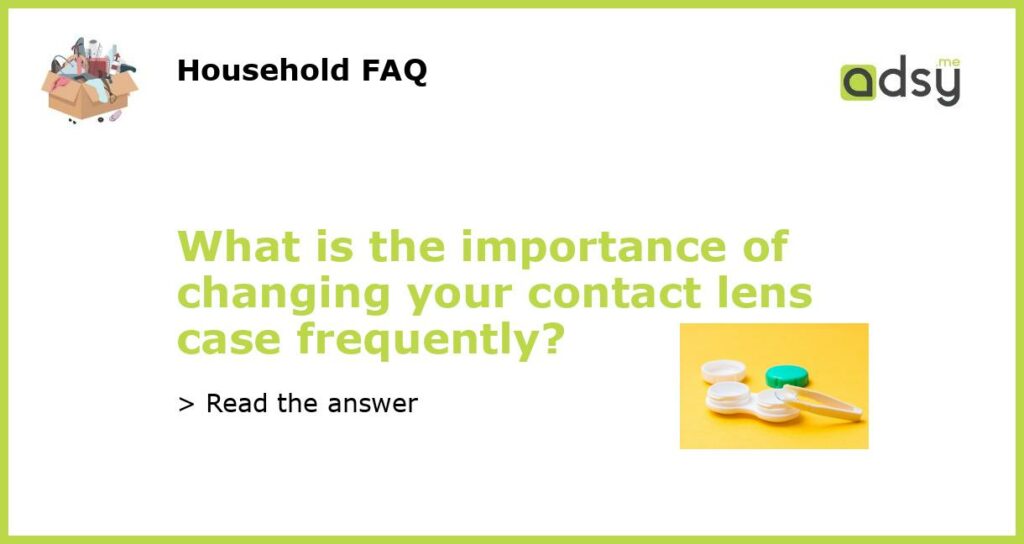Importance of Changing Contact Lens Case
As contact lens wearers, we all know the importance of keeping our lenses clean and hygienic. However, many of us overlook the necessity of changing our contact lens case frequently. In this article, we will explore the reasons behind the importance of changing your contact lens case and how often it should be done.
Bacteria and Biofilm Build-up in Contact Lens Cases
Research has found that contact lens cases are a breeding ground for bacteria and biofilm build-up, which can lead to eye infections and other complications. A study published in the journal Optometry and Vision Science found that 80% of contact lens cases are contaminated with bacteria, with some cases containing up to 106 bacterial cells per milliliter. This can lead to a higher risk of developing serious eye infections such as keratitis, which can cause permanent vision loss.
The Importance of Regularly Changing Your Contact Lens Case
It is recommended to change your contact lens case every three months. However, if you notice any damage, discoloration, or if you have been sick, it is important to change it sooner. Regularly changing your contact lens case can help reduce the build-up of bacteria and prevent eye infections. Additionally, it is important to clean your contact lens case daily by rinsing it with a solution and allowing it to air dry.
Choosing the Right Contact Lens Case
When choosing a contact lens case, it is important to choose one that is easy to clean and has a tight-fitting lid to prevent contamination. Some contact lens cases come with antimicrobial properties to help reduce the growth of bacteria.
Maintaining Good Contact Lens Hygiene
Changing your contact lens case is just one part of maintaining good contact lens hygiene. It is also important to follow your eye doctor’s instructions for lens cleaning and replacement, avoid wearing lenses for extended periods, and never share your contact lenses with others. By following these simple steps, you can help prevent eye infections and ensure the longevity of your contact lenses.






